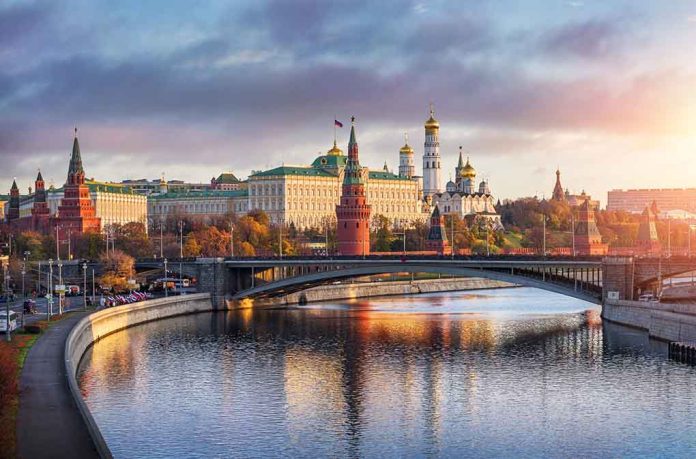
Russia is set to invest $660 million to tighten its grip on internet censorship, aiming to block VPNs and control military information.
At a Glance
- Russia plans to spend nearly 60 billion roubles ($660 million) over five years to enhance internet censorship
- The primary goal is to strengthen tools that block VPNs and restrict access to content deemed illegal
- The system, known as TSPU, uses deep packet inspection to monitor and block access to certain services and websites
- Critics view these measures as an attack on free speech, while the Kremlin positions them as necessary for national security
Russia’s Massive Investment in Internet Control
Russia’s Ministry of Digital Development has unveiled plans to invest nearly 60 billion roubles ($660 million) over the next five years to bolster its internet censorship system, known as TSPU. This significant financial commitment dwarfs Roskomnadzor’s entire 2023 budget, underscoring the government’s determination to tighten control over online content and information flow within the country.
The TSPU system, which utilizes deep packet inspection (DPI) technology, is designed to monitor and block access to services and websites deemed harmful or illegal by the Russian government. Controlled by Roskomnadzor, a government agency responsible for internet oversight, TSPU has been a cornerstone of Russia’s internet control strategy since its formalization under a 2019 law.
Targeting VPNs and Expanding Capabilities
A primary focus of this massive investment is to enhance the system’s ability to block Virtual Private Networks (VPNs). The government aims to block 96% of VPNs used by Russian citizens to bypass existing restrictions. This move is part of a broader ‘Cybersecurity Infrastructure’ project that includes acquiring new software and hardware to expand the system’s capabilities.
“Mazay Banzaev, who operates a popular Amnezia VPN service, expressed confidence in a Forbes interview that software developers will continue to innovate ways to bypass government restrictions, regardless of how much the Russian government invests in its censorship systems,” per Yahoo.
The development of the Automated Security System (ASBI) is expected to boost TSPU’s bandwidth to an impressive 725.6 Tbps, significantly increasing its efficiency in blocking VPNs. However, experts note that TSPU may still struggle to block all VPN protocols, indicating an ongoing battle between VPN developers and government censors.
Broader Implications and International Context
This investment is part of a larger government initiative for digital transformation and data economy development. It includes efforts to develop a unified platform to combat fraud and a system to block phishing websites. The move comes amid increased control over internet content since Russia’s invasion of Ukraine in 2022, which has seen the blacklisting of opposition media and banning of foreign social media platforms.
Russia to spend $660 million to strengthen its Internet censorship infrastructure: Report https://t.co/684qxIRoex pic.twitter.com/Wj2HGyo9EV
— Tom's Hardware (@tomshardware) September 11, 2024
Critics view these measures as an attack on free speech, while the Kremlin positions them as necessary for national security and to counter what it calls Western information warfare. Digital rights activists warn that while these new investments in censorship technology will tighten government control, they are unlikely to completely eliminate access to independent information.
The Ongoing Struggle for Information Control
Despite the government’s efforts, demand for alternative ways to access the internet remains high among Russian citizens. The struggle between government control and free access to information continues, with both sides ramping up their efforts. VPN developers and circumvention tool creators remain determined to innovate and counteract censorship measures.
As Russia pours resources into its internet censorship infrastructure, the international community watches closely. The outcome of this digital tug-of-war will have significant implications for freedom of information not only within Russia but potentially for other nations considering similar measures.





